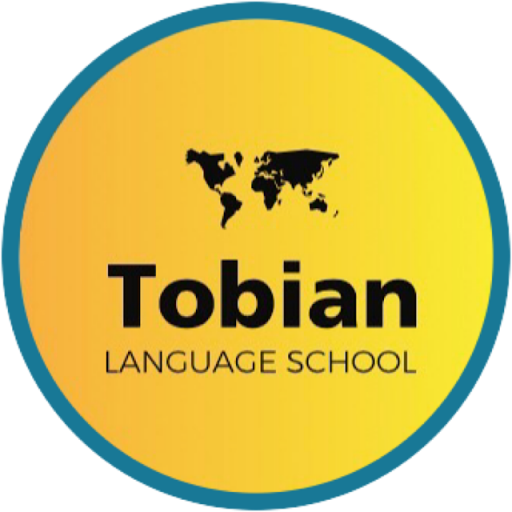German Football Terms: Enhancing Your Euros 2024 Experience
- June 19, 2024
- By Tobias Woudt
The UEFA European Championship 2024, commonly known as the Euros, is a highly anticipated event that brings together football fans from across the European continent.
This year, Germany has the honor of hosting the tournament, promising a thrilling display of talent, passion, and cultural exchange.
And with the competition underway as of Friday the 14th of June, let’s find out about German Football Terms that are commonly used and the history of football in Germany.
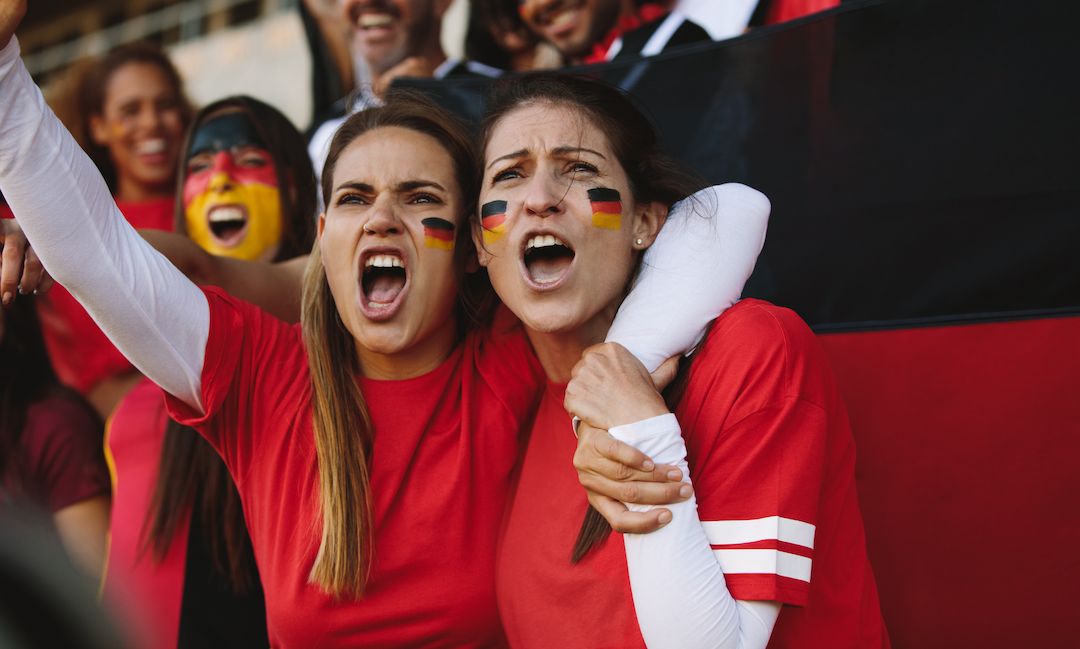
Table of Content
About The Country Germany
Germany, located in the heart of Europe, is renowned for its rich history, diverse culture, and economic prowess.
It is the birthplace of famous composers like Beethoven and Bach, and is known for its contributions to philosophy, literature, and science.
The German language, spoken by over 90 million people as a first language, is the most widely spoken native language in Europe.
It’s a language known for its precision and extensive vocabulary, making it fascinating for language learners.
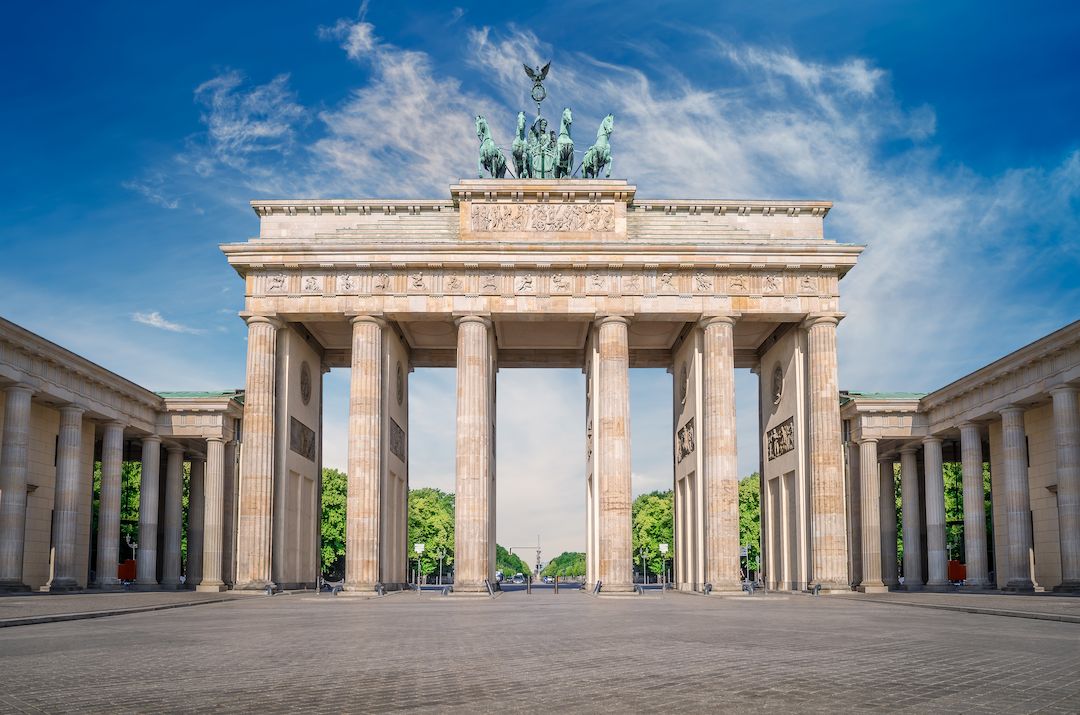
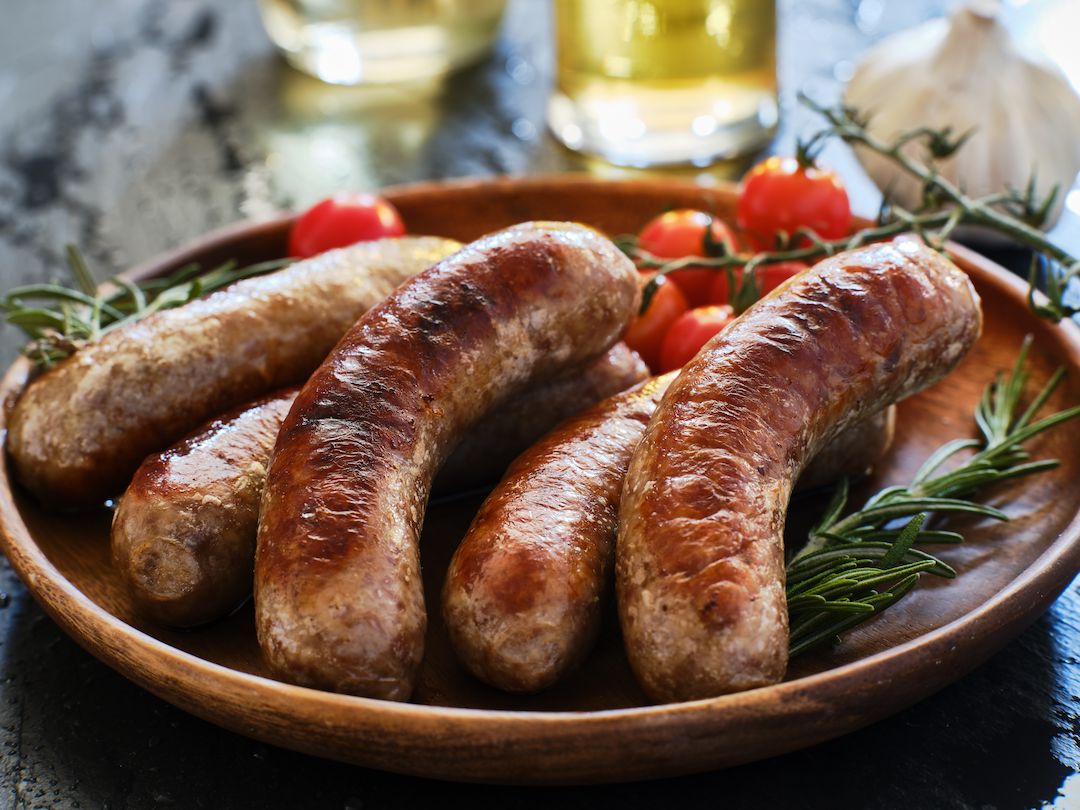
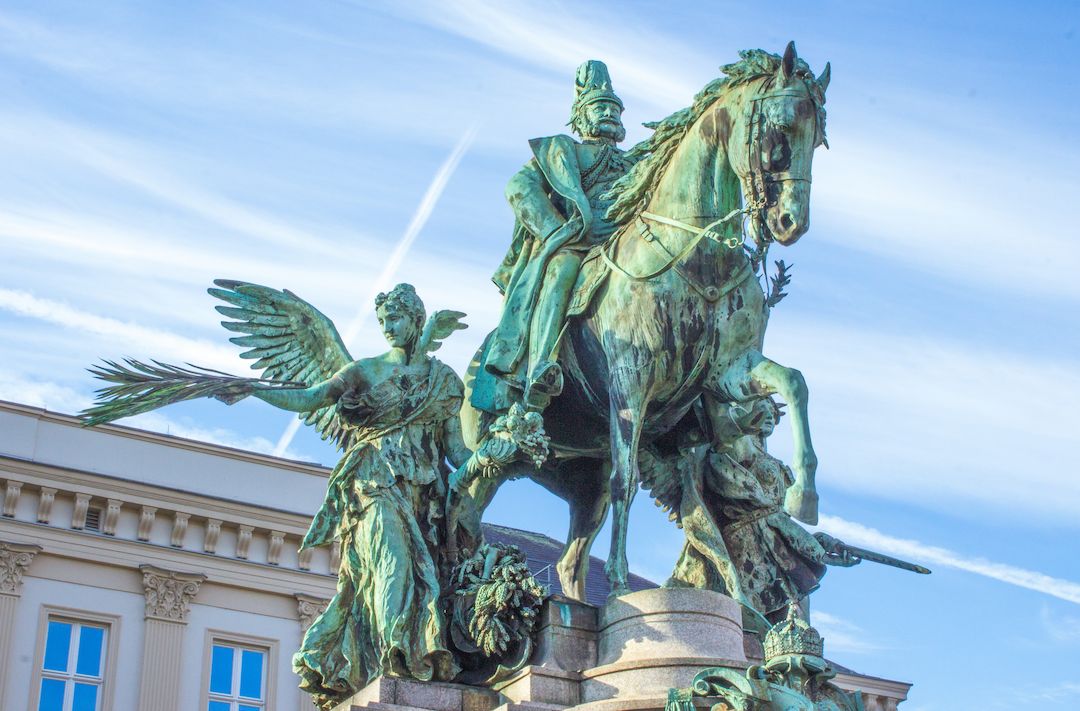
Germany is a country of scenic landscapes, from the Bavarian Alps in the south to the beaches of the Baltic Sea in the north.
It’s also home to a variety of culinary delights such as bratwurst, pretzels, and the renowned beer culture.
German Football Terms : The History of Germany As A Football Nation
Germany has a distinguished football history, renowned for its strategic prowess and cultural impact.
The national team, Die Mannschaft, has secured four FIFA World Cup titles and three UEFA European Championships, highlighting its dominance.
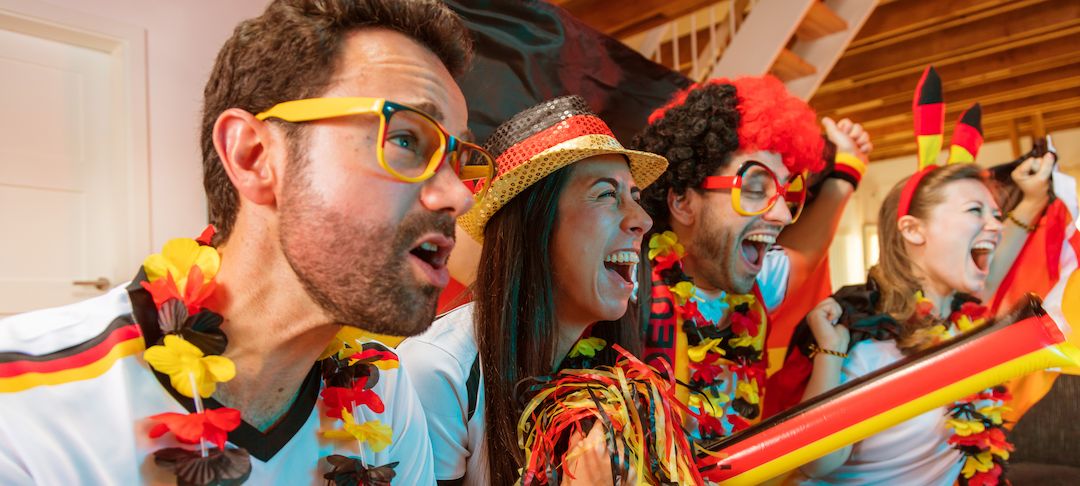
1. Key Elements of their Success:
Germany’s football success stems from a robust development system, emphasizing youth academies that consistently produce top talent. This infrastructure supports tactical excellence and ensures competitiveness at all levels.
2. Cultural Significance:
Football holds a central place in German culture, drawing fervent support from millions nationwide. Iconic stadiums like Signal Iduna Park in Dortmund symbolize the passionate fanbase and electric match-day atmosphere.
Find out more about the Stadiums that will be used in the Euros 2024 here.
3. Strategic Approach:
German football teams are known for their disciplined tactics, combining technical proficiency with physical fitness.
This approach, coupled with a legacy of legendary players from Franz Beckenbauer to Thomas Müller, underscores Germany’s footballing pedigree.
As Germany hosts the UEFA European Championship in 2024, its enduring football legacy and commitment to excellence are once again in the spotlight.
German Football Terms and The Euros 2024 Stadiums
Germany will be hosting the Euros in 2024 in several iconic stadiums across the country, each with its own unique charm and association with German Football Terms.
- *Allianz Arena (Munich)*: Known for its distinctive exterior, which can change colors, the Allianz Arena is home to Bayern Munich and is one of the most modern stadiums in the world.
- *Signal Iduna Park (Dortmund)*: Famous for its passionate fans and the “Yellow Wall,” Signal Iduna Park is the largest stadium in Germany by capacity and offers an electrifying atmosphere.
- *Olympiastadion (Berlin)*: A stadium with historic significance, having hosted the 1936 Olympics and the 2006 World Cup final. Its imposing architecture is a must-see.
- *Volksparkstadion (Hamburg)*: Located in northern Germany, this stadium is known for its vibrant fan base and excellent facilities.
- *Mercedes-Benz Arena (Stuttgart)*: A multi-purpose stadium in the heart of Stuttgart, offering state-of-the-art amenities and a great viewing experience.
- *Commerzbank-Arena (Frankfurt)*: Nestled in a forested area, this stadium combines modern features with a picturesque setting.
- *RheinEnergieStadion (Cologne)*: Known for its friendly atmosphere and central location, making it easily accessible for fans.
- *Red Bull Arena (Leipzig)*: A modern stadium that has quickly become a staple in German football since its renovation in 2010.
- *Veltins-Arena (Gelsenkirchen)*: Unique for its retractable roof and slide-out pitch, offering a versatile space for events.
- *HDI-Arena (Hannover)*: Located in Lower Saxony, this stadium is known for its excellent acoustics and vibrant matchday experience.
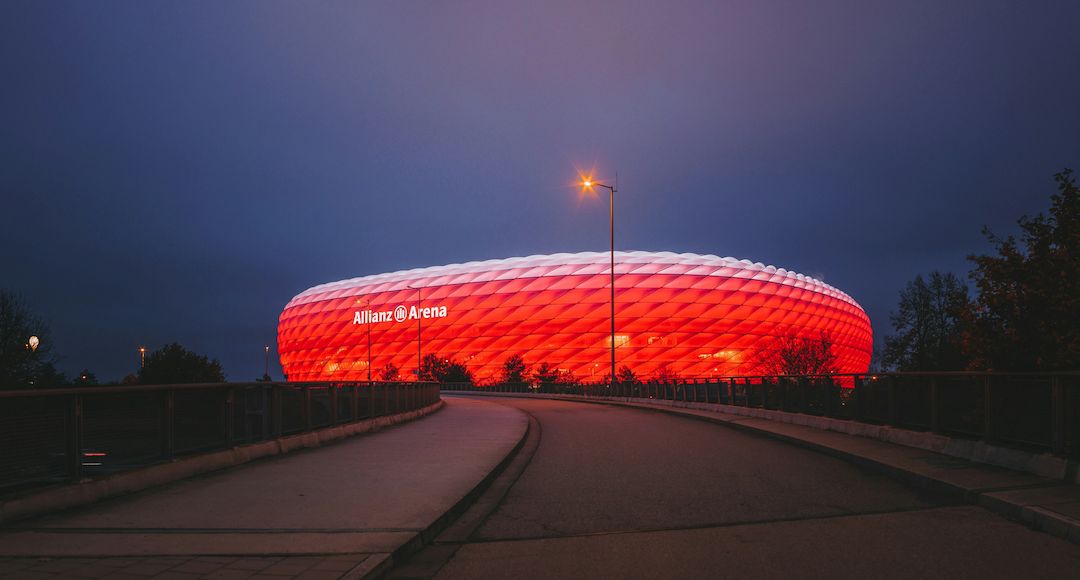
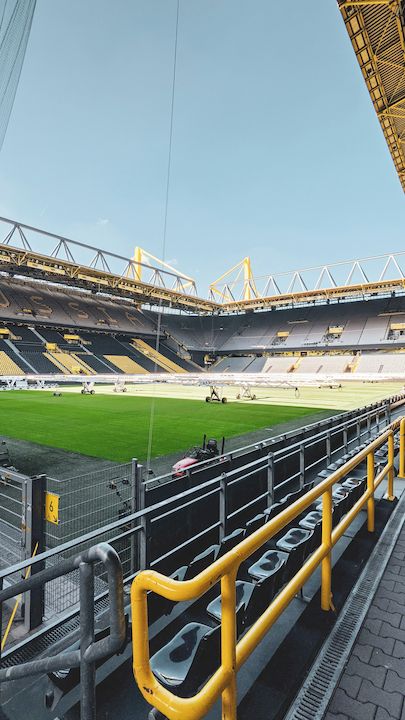
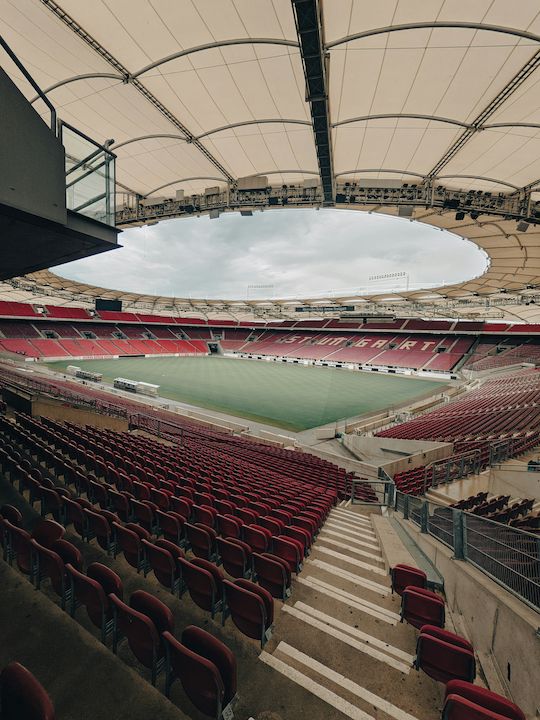
20 German Football Terms You Should Know
As you prepare to watch the Euros, or are heading to Germany during this electric period, here are some essential German football terms to enhance your experience and help you feel more connected to the game:
- *Das Tor*: The goal.
- *Der Torwart*: The goalkeeper.
- *Die Abwehr*: The defense.
- *Der Stürmer*: The striker.
- *Das Mittelfeld*: The midfield.
- *Die Flanke*: The cross.
- *Das Foul*: The foul.
- *Der Schiedsrichter*: The referee.
- *Die gelbe Karte*: The yellow card.
- *Die rote Karte*: The red card.
- *Der Freistoß*: The free kick.
- *Der Elfmeter*: The penalty kick.
- *Der Eckstoß*: The corner kick.
- *Die Nachspielzeit*: The stoppage time.
- *Der Anstoß*: The kick-off.
- *Die Verlängerung*: The extra time.
- *Das Abseits*: The offside.
- *Der Trainer*: The coach.
- *Der Spieler*: The player.
- *Der Schuss*: The shot.
The Participating Countries and Their Languages
As we stay on the topic of the Euros 2024, here’s a brief overview of the participating countries in the Euros, along with the languages they speak and a bit about each country, after all we are an international language school
1. **France** (French): Renowned for its cuisine, art, and fashion, France is a cultural hub in Europe. French is a Romance language spoken by millions worldwide. View courses here
2. **Spain** (Spanish): Famous for its vibrant culture, festivals, and historical landmarks. Spanish, or Castellano, is a Romance language spoken by over 480 million people as a first language. View courses here
3. **Italy** (Italian): Known for its rich history, art, and culinary traditions. Italian is a Romance language with a musical quality, spoken primarily in Italy. View courses here
4. **England** (English): The birthplace of modern football and home to a wealth of historical sites. English is a Germanic language and the third most spoken native language worldwide. View courses here
5. **Portugal** (Portuguese): A country with a rich maritime history and famous for its Fado music and port wine. Portuguese is a Romance language spoken by over 220 million people. View courses here
6. **Netherlands** (Dutch): Known for its picturesque canals, tulips, and progressive culture. Dutch is a West Germanic language spoken in the Netherlands and parts of Belgium. View courses here
7. **Belgium** (Dutch, French, German): Famous for its chocolates, waffles, and medieval towns. Belgium is multilingual, with Dutch, French, and German as official languages.
8. **Denmark** (Danish): Known for its high quality of life, design, and maritime heritage. Danish is a North Germanic language spoken by about 6 million people.
9. **Croatia** (Croatian): A country with a stunning Adriatic coastline and rich cultural history. Croatian is a South Slavic language spoken by around 5 million people.
10. **Poland** (Polish): Known for its medieval architecture, hearty cuisine, and historical significance. Polish is a West Slavic language spoken by over 45 million people.
11. **Austria** (German): Famous for its alpine scenery, classical music heritage, and pastries. German is the official language, with Austrian German being the standard form.
12. **Switzerland** (German, French, Italian, Romansh): Known for its neutrality, beautiful landscapes, and banking. Switzerland has four official languages: German, French, Italian, and Romansh.
13. **Turkey** (Turkish): A country that bridges Europe and Asia, known for its rich cultural heritage and cuisine. Turkish is a member of the Turkic language family, spoken by over 75 million people.
14. **Czech Republic** (Czech): Famous for its castles, beer culture, and medieval towns. Czech is a West Slavic language spoken by about 10 million people.
15. **Hungary** (Hungarian): Famous for its thermal baths, architecture, and paprika-laden cuisine. Hungarian is a Uralic language spoken by around 13 million people.
16. **Ukraine** (Ukrainian): Famous for its Orthodox churches, Black Sea coastline, and vibrant traditions. Ukrainian is an East Slavic language spoken by around 30 million people.
17. **Scotland** (English, Scots Gaelic): Known for its rugged landscapes, kilts, and rich history. English is widely spoken, and Scots Gaelic is also recognized.
18. **Slovakia** (Slovak): Known for its dramatic natural scenery and medieval history. Slovak is a West Slavic language spoken by about 5 million people.
19. **Slovenia** (Slovene): Famous for its lakes, mountains, and charming architecture. Slovene is a South Slavic language spoken by about 2.5 million people.
20. **Georgia** (Georgian): Known for its diverse culture, ancient history, and wine regions. Georgian is a Kartvelian language spoken by about 4 million people.
21. **Serbia** (Serbian): Famous for its medieval monasteries, vibrant nightlife, and folklore. Serbian is a South Slavic language spoken by about 7 million people.
22. **Albania** (Albanian): Known for its archaeological sites, coastal beauty, and traditional music. Albanian is an Indo-European language spoken by about 7.5 million people.
23. **Romania** (Romanian): Famous for its Carpathian mountains, medieval castles, and folklore. Romanian is a Romance language spoken by about 24 million people.
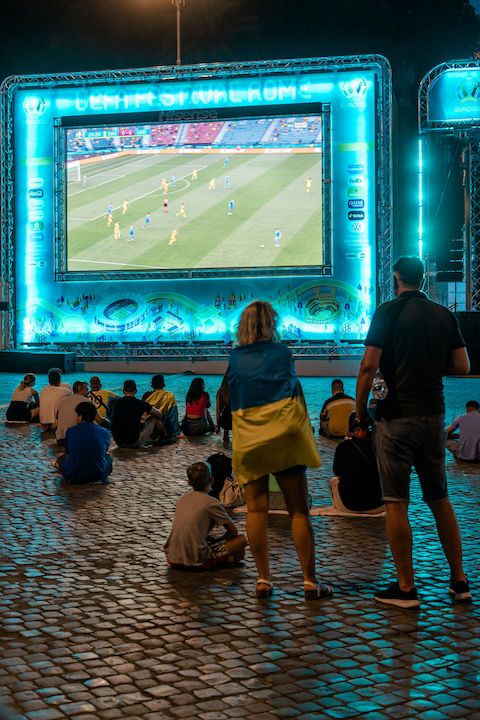
Conclusion
At Tobian Language School, we are excited to join the international community in celebrating the Euros.
As we share our passion for languages, we also enjoy the cultural and sporting events that bring us together. Whether you are a football fan or a language enthusiast, we hope you enjoy the tournament and the beautiful game!
Fun, flexibility, and growth are central to our approach, and we are committed to helping you achieve your language learning goals while enjoying cultural exchanges. Besides sharing our languages, we also share our cultures and values with you.
We are an international community looking forward to the Euros.
Viel Spaß und viel Erfolg beim Fußballschauen! (Have fun and good luck watching the football!)

Tobias is a polyglot, traveller and founder of the Tobian Language School.
